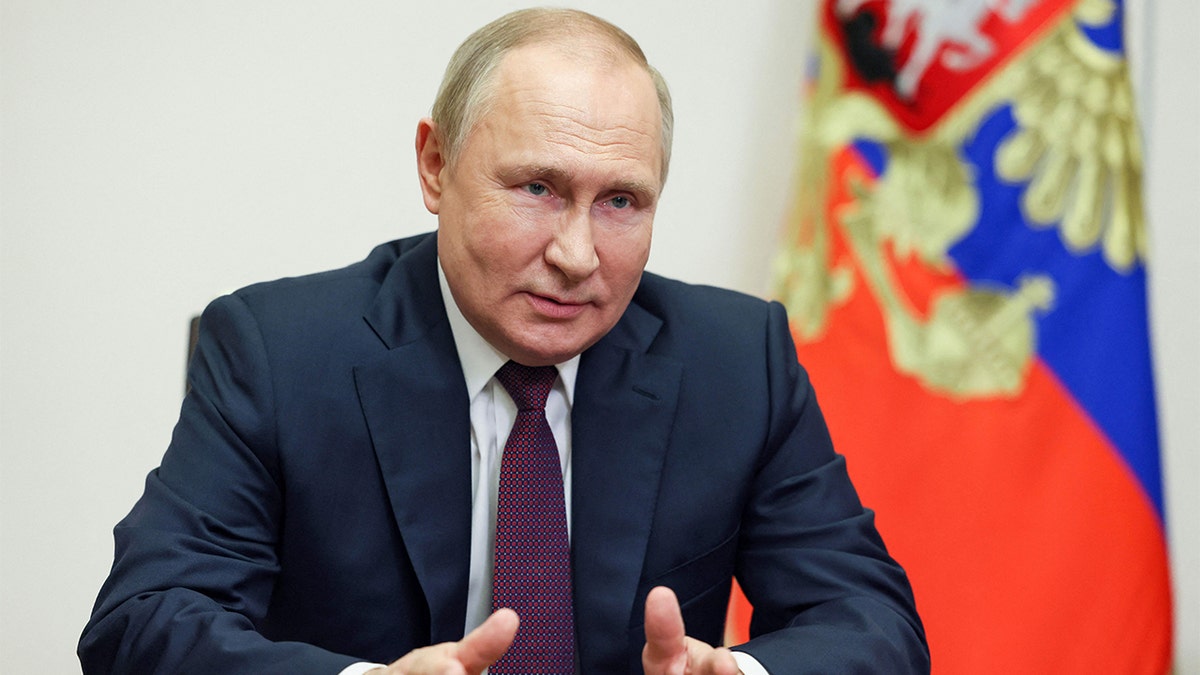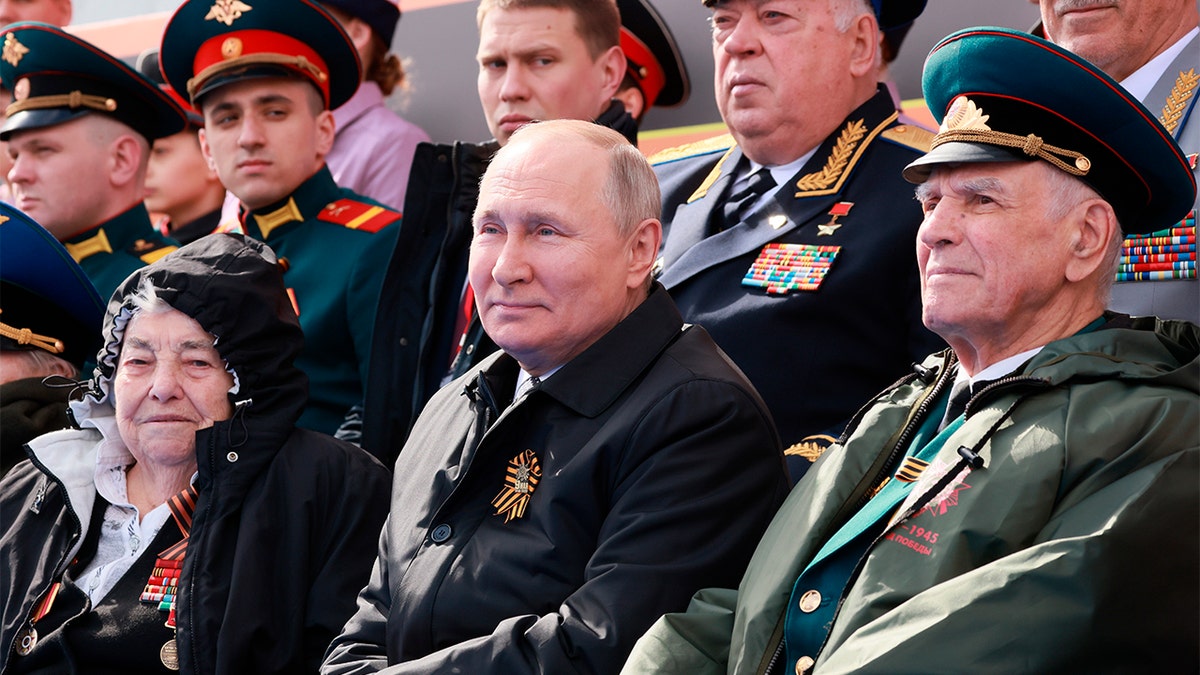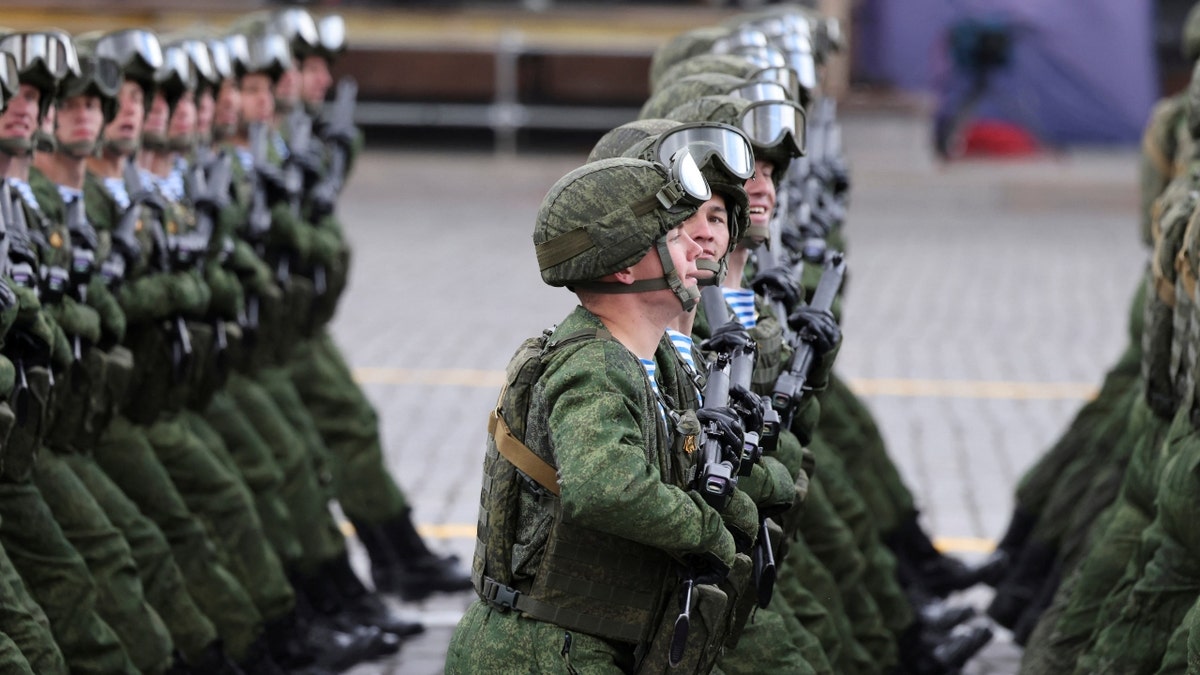Putin declares US as one of Russia's main rivals as assault on Ukraine continues
Correspondent Alex Hogan reports the latest on Putin's stance as Ukraine battles a food crisis amid the war.
Russian President Vladimir Putin said on Monday that his country is ready to distribute advanced weaponry across the globe, including in Latin America, which he says is superior to other weapons systems.
"Russia sincerely cherishes the historical strong, friendly, truly trusting ties with the states of Latin America, Asia, and Africa and is ready to offer its partners and allies the most modern types of weapons," Putin said at the opening of the Army-2022 International Military and Technical Forum outside of Moscow. "From small arms to armored vehicles and artillery, combat aircrafts and unmanned aerial vehicles."
Putin added that "almost all" of the weapons he is willing to sell across the globe have been used more than once in combat and claimed that the Russian-made products are superior to those made by his foreign rivals.
"Many of them are years, or maybe decades ahead of their foreign counterparts, and in terms of tactical and technical characteristics they are significantly superior to them," Putin said.

Russian President Vladimir Putin delivers an address to the participants of the Bolshaya Peremena All-Russian contest for school students (MIKHAIL METZEL/SPUTNIK/AFP via Getty Images)
Rebekah Koffler, a former U.S. DIA intelligence officer focused on Russia and the author of "Putin's Playbook: Russia's Secret Plan to Defeat America," told Fox News Digital that Putin’s comments show his desire to push his country’s influence all over the world.
"Putin is reaching out to all corners of the world especially now that Russia is being isolated by Western sanctions," Koffler said. "He’s trying to invoke his own version of the Monroe Doctrine in his pursuit of influence that the Russians believe we are violating by trying to democratize countries like Ukraine."
RUSSIA WARNS ARAB COUNTRIES AGAINST SMUGGLING WEAPONS TO UKRAINE
Koffler explained that Russia’s overtures to his Latin American allies such as Venezuela and Cuba have been "intensifying" in recent months and could be part of a plan to potentially establish military bases in the region.

Russian President Vladimir Putin, center, attends the Victory Day military parade marking the 77th anniversary of the end of World War II (Mikhail Metzel, Sputnik, Kremlin Pool Photo via AP)
Koffler said that Putin is telling the world that he believes Russia’s "value system is superior" and that by presenting a united front with his dictator-led allies in the Western Hemisphere he is "countering U.S. influence" and attempting to "demonstrate that their regimes are just as legitimate as democratic regimes."
WEAPONS USED IN THE RUSSIA-UKRAINE WAR
Putin's statement also signals that he "needs additional revenue" in light of U.S. sanctions stemming from Russia's ongoing invasion of Ukraine, Koffler explained. He's also "always interested in supporting fellow authoritarian regimes."
While Koffler acknowledged that Russian weapons may not be as sophisticated as U.S. weapons in all areas, the country is considered by the Pentagon as a "near peer" competitor in that department and weapons ranging from AK-47s to S-400 surface-to-air missile systems could end up in the hands of groups across the world that present a "threat in the long term" to "kill Americans."

Russian service members march during a military parade on Victory Day, which marks the 77th anniversary of the victory over Nazi Germany in World War Two (REUTERS/Shamil Zhumatov)
CLICK HERE TO GET THE FOX NEWS APP
"It's not just Latin America, but it's all over," Koffler said of Putin's plans to ship weapons to allies. "It's China, North Korea, and Iran as well."
Russia ranks second only to the United States with arms sales of around $15 billion a year, nearly a fifth of the global export market. From 2017-2021, 73% of those sales went to just four countries - India, China, Egypt and Algeria - according to the Stockholm International Peace Research Institute.
Reuters contributed to this report.










































